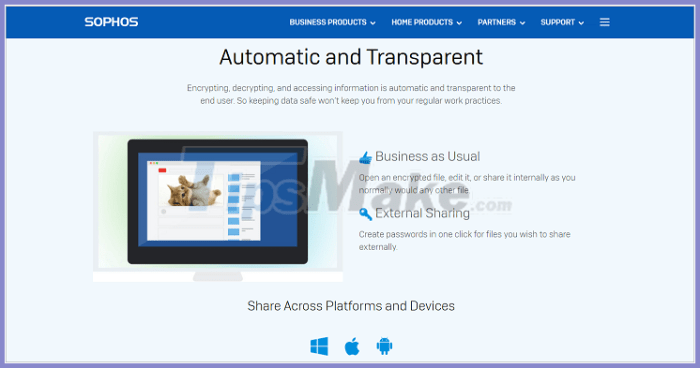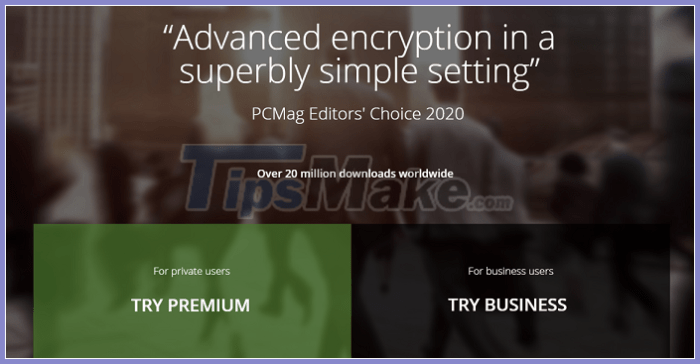In today’s increasingly digital world, protecting sensitive data is paramount. Hard drive encryption software provides a crucial layer of security, safeguarding your personal information, financial records, and intellectual property from unauthorized access. This comprehensive guide explores the intricacies of hard drive encryption, covering various software options, their features, and crucial considerations for effective data protection.
Understanding Hard Drive Encryption
Hard drive encryption is the process of converting readable data into an unreadable format, known as ciphertext, using a cryptographic algorithm. This scrambled data can only be accessed with a decryption key, ensuring that even if your hard drive is stolen or lost, your data remains protected. This protection extends beyond physical theft, safeguarding against malicious software and unauthorized access attempts.
Types of Hard Drive Encryption
- Full Disk Encryption (FDE): This encrypts the entire hard drive, including the operating system, applications, and user data. Popular examples include BitLocker (Windows), FileVault (macOS), and VeraCrypt (cross-platform).
- File-Level Encryption: This encrypts individual files or folders, offering granular control over which data is protected. Examples include 7-Zip with AES encryption and various cloud storage services with built-in encryption.
- Hardware-Based Encryption: This utilizes specialized hardware components within the hard drive itself to perform encryption and decryption, often offering faster performance and enhanced security.
Choosing the Right Hard Drive Encryption Software
Selecting the appropriate encryption software depends on several factors, including your operating system, budget, security requirements, and technical expertise. Consider the following aspects:
Key Features to Look For
- Strong Encryption Algorithms: Look for software utilizing AES-256 or other robust algorithms with proven security.
- Ease of Use: Choose software with a user-friendly interface, especially if you’re not tech-savvy.
- Platform Compatibility: Ensure compatibility with your operating system (Windows, macOS, Linux).
- Key Management: Understand how the software manages encryption keys; strong key management practices are crucial for security.
- Performance Impact: While encryption adds a layer of security, it can impact system performance. Consider the trade-off between security and speed.
- Recovery Options: Explore the software’s recovery options in case you lose your encryption key.
- Automatic Encryption: Some software offers automatic encryption of new files or folders, enhancing convenience and security.
Popular Hard Drive Encryption Software Options
Several reputable software options cater to different needs and preferences:
BitLocker (Windows)
BitLocker is a built-in full disk encryption feature in Windows operating systems. It offers robust security and integrates seamlessly with the Windows environment. However, it requires a Trusted Platform Module (TPM) chip for optimal security.
FileVault (macOS)
FileVault is Apple’s built-in full disk encryption solution for macOS. It’s user-friendly and provides strong security, automatically encrypting your entire hard drive. It also offers options for recovery keys.
VeraCrypt (Cross-Platform), Hard drive encryption software
VeraCrypt is a free, open-source, and cross-platform disk encryption software. It’s known for its strong security and flexibility, offering both full disk and file/partition encryption. Its open-source nature allows for community scrutiny, enhancing trust.
7-Zip (File-Level Encryption)
While primarily a file archiver, 7-Zip supports AES-256 encryption, allowing you to encrypt individual files and folders. This is a convenient option for selectively protecting sensitive data.
Security Best Practices for Hard Drive Encryption: Hard Drive Encryption Software
Even with robust encryption software, maintaining secure practices is vital:
- Strong Passwords: Use long, complex, and unique passwords for your encryption keys.
- Regular Software Updates: Keep your encryption software updated to benefit from security patches and improvements.
- Secure Key Management: Follow the software’s recommendations for storing and managing your encryption keys. Never share them with anyone.
- Physical Security: Protect your computer from physical theft or unauthorized access.
- Backup Your Encryption Key: Store a backup of your encryption key securely, preferably offline and in multiple locations.
Frequently Asked Questions (FAQ)
- Q: Is hard drive encryption necessary? A: The need for hard drive encryption depends on the sensitivity of your data. If you store sensitive financial information, personal details, or intellectual property, encryption is highly recommended.
- Q: How does hard drive encryption affect performance? A: Encryption can slightly impact performance, but modern algorithms and hardware acceleration minimize this effect.
- Q: What happens if I lose my encryption key? A: Data recovery is generally impossible without the key. Therefore, secure key management and backup are crucial.
- Q: Can I encrypt a USB drive? A: Yes, most encryption software supports encrypting external drives, including USB drives.
- Q: Is it legal to encrypt my hard drive? A: Encrypting your hard drive is generally legal, unless you’re using it to conceal illegal activities.
- Q: What’s the difference between software and hardware encryption? A: Software encryption uses the computer’s processor, while hardware encryption uses dedicated hardware on the drive itself, usually offering faster performance.
Conclusion
Hard drive encryption is a crucial aspect of data security in today’s digital landscape. By understanding the various options, features, and security best practices, you can effectively protect your sensitive information from unauthorized access. Choose the software that best suits your needs and prioritize secure key management for optimal protection.
References
- Microsoft BitLocker Documentation
- Apple FileVault Support
- VeraCrypt Official Website
- 7-Zip Official Website
Call to Action
Protect your valuable data today! Download and install reliable hard drive encryption software and implement secure practices to safeguard your sensitive information.
FAQ Overview
What is the difference between full-disk and file-level encryption?

Source: tipsmake.com
Full-disk encryption protects the entire hard drive, while file-level encryption protects only specific files or folders.
How does encryption affect my computer’s performance?

Source: tipsmake.com
Encryption can slightly decrease performance, but advancements have minimized this impact. The effect varies depending on the hardware and software used.
Is my data truly secure with encryption?

Source: appsquadz.com
While encryption significantly enhances security, it’s not foolproof. Strong passwords and regular software updates are also crucial for comprehensive protection.
What happens if I forget my encryption password?
Recovery options vary depending on the software. Some offer password recovery features, while others may require data loss if the password is irretrievably forgotten. It’s essential to store your password securely.
Can I encrypt an external hard drive?
Yes, many encryption software programs support external hard drive encryption, offering the same security benefits for portable storage.
